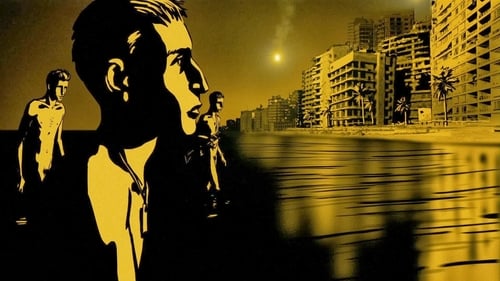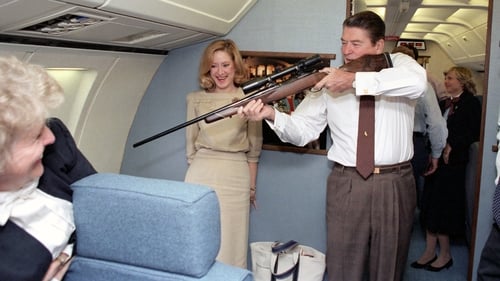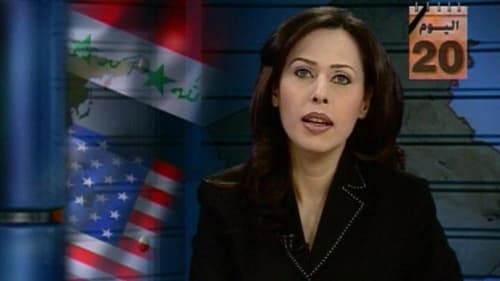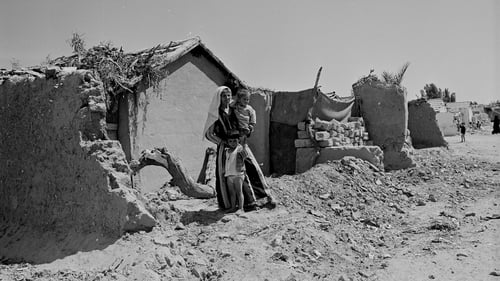No Other Land (2024)
ジャンル : ドキュメンタリー
上映時間 : 0分
演出 : Basel Adra, Hamdan Ballal, Yuval Abraham, Rachel Szor
シノプシス
Made by a Palestinian-Israeli collective, this documentary shows the destruction of the West Bank’s Masafer Yatta by Israeli authorities and the unlikely friendship that blossoms between Palestinian activist Basel Adra and Israeli journalist Yuval Abraham.

In july 1987 palestinian cartoonist Naji Al Ali was shot by unknown assassin. this documentary traces his life and work from his birth in Galilee to his death in London it examines the forces that shaped Naj Al Alii as an artist and as a human being and shows how his experiences mirror of other exiled palestinians.

In Breaking Bread, exotic cuisine and a side of politics are on the menu. Dr. Nof Atamna-Ismaeel - the first Muslim Arab to win Israel's MasterChef - is on a quest to make a social change through food. And so, she founded the A-sham Arabic Food Festival in Haifa. There, pairs of Arab and Jewish chefs collaborate on mouthwatering dishes like kishek (a Syrian yogurt soup), and qatayef (a dessert typically served during Ramadan), as we savor the taste of hope and discover the food of their region free from political and religious boundaries.

イスラエル人監督、アリ・フォルマンが自らの戦争体験を描き、2009年のアカデミー賞で外国語映画賞に選出されたドキュメンタリーアニメ。アリは旧友と再会を果たすが、会話の途中でふと自分の記憶が一時期だけ抜け落ちていることに気付き…。

Documentarian Ra'anan Alexandrowicz accompanies a Palestinian tour group on a three-day sight-seeing trip to Israel.

The pro-Palestinian, anti-capitalist, BDSM-provocative, techno-punk performance art ensemble (!) Hatari unsurprisingly drew attention to themselves with their performance at the Icelandic qualifiers for the Eurovision Song Contest. So much so that they won and therefore were allowed to perform at the main event in Tel Aviv. But what now? Should they boycott the event, swallow their idealism or use their airtime to criticise the host country for their illegal occupation of Palestine? The Icelandic director Anna Hildur joins the boys in the band all the way to the fateful final. Produced by the team behind the Nick Cave film '20,000 days on Earth'.

A detailed investigation into the political and economic interests that, since the beginning of the 20th century, have pulled the strings of the arms trade, hidden in the shadows, feeding the shameful corruption of politicians and government officials and promoting a state of permanent war throughout the world, while they cynically asked for a lasting and universal peace.

Najwa, Nawal and Siham, three Palestinian widows, live with their 11 children in a house on Shuhada Street in Hebron. Their house lies on the border; the façade is under Israeli occupation, the Palestinian authority controls the back. At the entrance to the house a military post, on the roof the Israeli army has placed a watch point over Palestinian Hebron. Three women, trapped in the middle, constantly surrounded by Israeli soldiers, carry on their difficult lives in a perverse situation: the occupation becomes a routine, the absurd becomes a given. This is the story of an occupation that extends to the staircase and the roof of the house, where it encounters poverty, loneliness, pain, but also the small joys of everyday life. This is an internal prison, the external one is the ongoing occupation.

Five women – Palestinian, American, Muslim, Christian, and Jewish – tell stories of humiliation and harassment by Israeli border guards and airport security officials.

A chronicle which provides a rare window into the international perception of the Iraq War, courtesy of Al Jazeera, the Arab world's most popular news outlet. Roundly criticized by Cabinet members and Pentagon officials for reporting with a pro-Iraqi bias, and strongly condemned for frequently airing civilian causalities as well as footage of American POWs, the station has revealed (and continues to show the world) everything about the Iraq War that the Bush administration did not want it to see.

A self-described liberal from cosmopolitan Tel Aviv, Zaki wanted to get behind the politics of Israel’s controversial settlements in the occupied territories — so she moved there, temporarily, setting up an improvised cafe where she could chat with settlers from her own generation.

The Israeli filmmaker Shai Corneli Polak records the building of the 'security wall' through Palestinian territory at the village of Bil'in. The villagers protest mostly peacefully, while the Israeli army doesn't react peacefully. By now the Israeli High Court has ruled that the building of the wall was illegal.

A thought-provoking documentary on the current and historical causes of the Israeli-Palestinian conflict and U.S. political involvement.

The film tells the compelling and moving stories of two remarkable young women living in Gaza and the struggle of Gazans trying to maintain their humanity and humor while hoping to find some sense of normality in a world that is anything but normal.

A fascinating journey with Israel’s notorious provocateur, Prof. Amir Hetsroni, into the depth of his romantic and interpersonal relationships, alienated childhood, and public persona versus his self-identity.

Prominent Columbia University English and Comparative Literature professor Edward Said was well known in the United States for his tireless efforts to convey the plight of the Palestinian people, and in this film shot less than a year before his death resulting from incurable leukemia, the author of such books as {-Orientalism}, {-Culture and Imperialism}, and {-Power, Politics, and Culture} discusses with filmmakers his illness, his life, his education, and the continuing turmoil in Palestine. Diagnosed with the disease in 1991, Said struggled with his leukemia throughout the 1990s before refraining from interviews due to his increasingly fragile physical state. This interview was the one sole exception to his staunch "no interview" policy, and provides fascinating insight into the mind of the man who became Western society's most prominent spokesman for the Palestinian cause.










